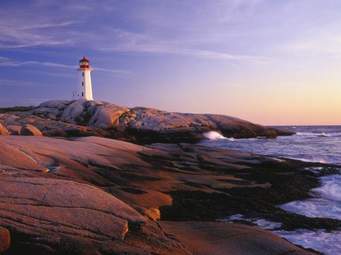 Lily Briscoe is one of the main characters in Virgina Woolf’s 1927 novel To The Lighthouse. The action takes place at the house on Sky that the Ramsey family rent every summer and share with a number of guests, one of whom is Lily, a young artist. Mr Ramsey is a philosopher and Mrs, Ramsey is an archetypal Edwardian upper middle class mother and home maker. The novel covers 10 years spanning the 1st World War. This story is based on Lily much later in her life and imagines how her life may have developed after Woolf left her to her own devices.
Lily Briscoe is one of the main characters in Virgina Woolf’s 1927 novel To The Lighthouse. The action takes place at the house on Sky that the Ramsey family rent every summer and share with a number of guests, one of whom is Lily, a young artist. Mr Ramsey is a philosopher and Mrs, Ramsey is an archetypal Edwardian upper middle class mother and home maker. The novel covers 10 years spanning the 1st World War. This story is based on Lily much later in her life and imagines how her life may have developed after Woolf left her to her own devices.
—————————————
Lily Briscoe sipped her tea from the rose petal porcelain teacup and contemplated the cake stand before her. She wasn’t hungry but felt she ought to have at least one of the fancies on offer. She had several hours to kill before the car would take her to the gallery and there would be a dinner to get through before then. All this was rather extravagant she thought but on the other hand the gallery would be making 35% of the sale of her pictures as well as the considerable kudos of hosting her latest exhibition.
On the wall of the suite she occupied in the Dorchester there was a large gilt framed, probably Victorian, oil painting of a seascape, a sailing ship tossed by heavy seas and, through the spume, the shadowy outline of threatening cliffs and a lighthouse, its beam refracted and dispersed by the low cloud and wind driven rain. Since arriving at the hotel she had spent a good deal of her time contemplating the picture and casting her mind back all those years to when she had spent long indolent summers with the Ramsay family at their cottage on Skye. How different things were then. How different she is now.
She was only 19, unworldly, inexperienced, and quite unprepossessing in appearance and the usual expected feminine graces. She was in love with Mrs. Ramsay and, she had eventually to admit to herself, in love with Mr. Ramsay too. Or was it that she wanted to be like them? Mrs. Ramsay’s calm assurance as she spun her web of familial warmth and comfort around them all, and his heroic rational detachment, firmly focused on the external world and the life of the mind. Lily felt she would like to be a mixture of both of them but recognised that in one person there would be a constant battle between such contrasting dispositions. The paintings she attempted while residing with the Ramsays, she had come to realise, had failed because she was confused and unfocused about what she was trying to achieve, what she wanted the pictures to portray. She had been caught between the two contradictory impulses to produce something realistic, objectively true, but at the same time express the existential impulse that shaped the feelings evoked by the subject, its emotion. She gave a wry smile. No wonder she never managed to finish anything, and Mrs. Ramsay had advised getting married and having a family would be achievement enough!
Well, 40 years later, she had still to achieve either of those goals, and felt none the worse for it. After the war, when she had been able to return to her painting, she had let her art be dictated by her emotional sensibilities, her immediate subjective reactions to the world around her, and the desire to escape from the hard-edged reality of the preceding dark years. This had clearly struck a chord, resonated, with the growing art-consuming public and paved the way to her considerable commercial success. As to her rational inclinations, she had unleashed these on the consumers of art, on promotion and marketing, on doing deals and securing contracts. Perhaps the Ramsays, as role models, had led her to be a rather split personality but, in her, they had formed a harmonious and successful business partnership.
 Lily Briscoe is one of the main characters in Virgina Woolf’s 1927 novel To The Lighthouse. The action takes place at the house on Sky that the Ramsey family rent every summer and share with a number of guests, one of whom is Lily, a young artist. Mr Ramsey is a philosopher and Mrs, Ramsey is an archetypal Edwardian upper middle class mother and home maker. The novel covers 10 years spanning the 1st World War. This story is based on Lily much later in her life and imagines how her life may have developed after Woolf left her to her own devices.
Lily Briscoe is one of the main characters in Virgina Woolf’s 1927 novel To The Lighthouse. The action takes place at the house on Sky that the Ramsey family rent every summer and share with a number of guests, one of whom is Lily, a young artist. Mr Ramsey is a philosopher and Mrs, Ramsey is an archetypal Edwardian upper middle class mother and home maker. The novel covers 10 years spanning the 1st World War. This story is based on Lily much later in her life and imagines how her life may have developed after Woolf left her to her own devices.